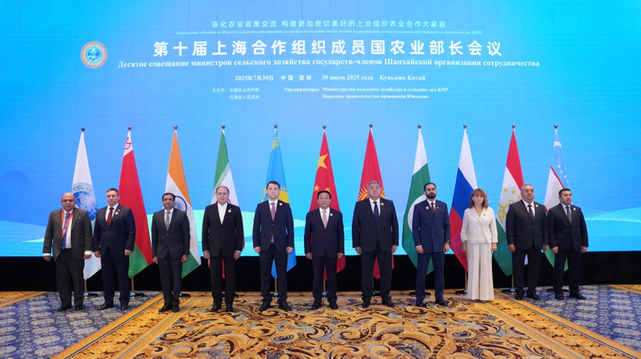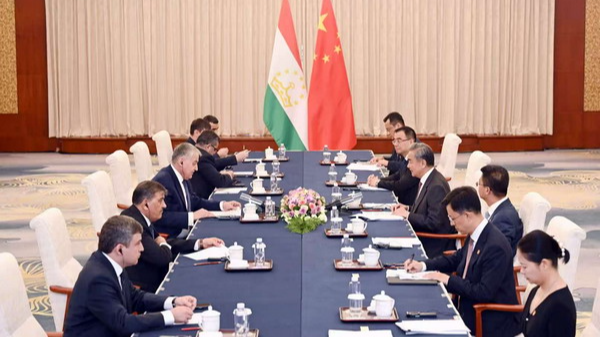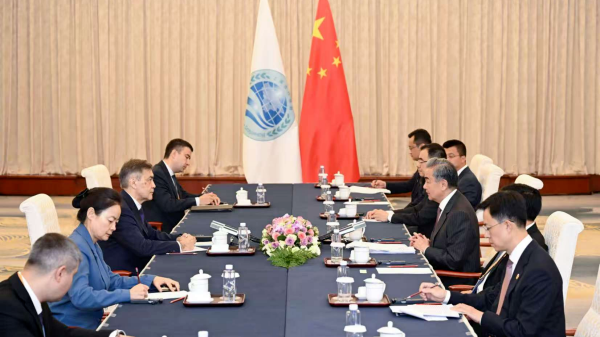Indo-Pakistani Rivalry Reshaping Global Geopolitics: A Conflict Neither Local Nor Over
Indo-Pakistani Rivalry Reshaping Global Geopolitics: A Conflict Neither Local Nor Over
By Uriel Araujo
The long-standing conflict between India and Pakistan is not confined to South Asia. The rivalry is entangling the Mediterranean, the Middle East, and Eurasian alliances — posing serious challenges to BRICS, the SCO, and global stability.
The Indo-Pakistani conflict, a decades-long saga rooted in the 1947 Partition and the contested region of Kashmir, is far from a contained regional dispute — and far from over. Its reverberations stretch across continents, entangling not only South Asia but also the Mediterranean, where shifting alliances amplify its global stakes.
The growing ties between Ankara and Islamabad, juxtaposed with Greece and Cyprus’s strengthening alignment with New Delhi, go to show how this rivalry transcends its geographic origins, weaving a complex web of geopolitical entanglements that could destabilize broader Eurasian and Mediterranean frameworks.
Dr. Rabia Akhtar, a nuclear security expert, notes that the crisis underscores the fragility of nuclear deterrence, as Pakistan’s full-spectrum deterrence doctrine clashed with India’s No First Use policy — creating a perilous enough escalatory ladder. The May 2025 ceasefire has offered some temporary reprieve, but continued violations along the Line of Control and incendiary rhetoric on both sides suggest peace remains tenuous.
Yet this crisis is not confined to the subcontinent. As I’ve noted, the Indo-Pakistani standoff tests the capacity of institutions like BRICS and the SCO to mediate tensions between member states. India’s growing alignment with the West — especially via the US-led Indo-Pacific strategy — contrasts with Pakistan’s reliance on China and, increasingly, Turkey (a NATO member which is ambiguous enough in its ambitions). These diverging alignments could be a challenge to platforms meant to promote multipolar cooperation and regional stability.
The crisis also ripples into the Middle East and the Caucasus. Pakistan’s growing rapport with Turkey and Azerbaijan has evolved into a strategic axis that balances against India’s deepening ties with Armenia, Saudi Arabia, and the UAE. Turkey has offered vocal support to Pakistan on Kashmir (an alignment that has an ideological element, according to Anil Khosla, former Vice Chief of India’s Air Staff). This is reciprocated by a number of things, including by Pakistan’s endorsement of Ankara’s stance on the Turkish Republic of Northern Cyprus.
Such bonds are more than symbolic: for one thing, a $900-million drone deal between Turkey and Pakistan was recently revised after setbacks during Operation Sindoor.
Meanwhile, India’s arms exports to Armenia and its expanding strategic partnerships with Gulf powers point to a broader effort to offset regional pressures — without openly targeting Pakistan too much. The outcome is a complex and polarized security environment, where allegiances across the Middle East and South Caucasus increasingly reflect the subcontinental rivalry.
In the Mediterranean, echoes of this conflict resonate through the Greek-Turkish divide. Dr. Ronald Meinardus of the Hellenic Foundation for European and Foreign Policy observes that Ankara’s strategic embrace of Pakistan mirrors its regional assertiveness, while Greece and Cyprus are drawing closer to India. The February 2024 strategic partnership between Indian Prime Minister Narendra Modi and Greek Prime Minister Kyriakos Mitsotakis emphasized joint naval exercises and defence cooperation.
Cyprus, for its part, has aligned with India in opposing Turkish claims in the Eastern Mediterranean — contributing to a geopolitical geometry that spans far beyond South Asia. One may recall that, as I wrote before, the spectre of a Greek-Turkish conflict is a fissure within the NATO alliance itself which has never gone away. Echoes of the Indo-Pakistani confrontation in a way fuel such tensions in Europe.
Be as it may, the spectre of nuclear escalation still looms large. One may recall that President Donald Trump warned that an India-Pakistan war “was probably going to end up nuclear” (while, predictably enough, trying to claim credit for the ceasefire). While both Asian nations have exercised a degree of restraint, as the deployment of advanced weaponry — including drones and precision-guided missiles — has narrowed the space for miscalculation.
Reports that Pakistani forces downed Indian Rafale jets using Chinese-supplied systems suggest an emerging parity in capabilities, a trend often described by Indian media as “scary”. Pakistan’s intelligence-sharing deal with Bangladesh has further raised concerns in New Delhi about the formation of a wider regional axis.
In sum, the Indo-Pakistani conflict’s global ramifications remain insufficiently assessed. Its intersections with Mediterranean and broader Eurasian dynamics challenge the view of it as a localized dispute.
This is not a mere academic issue. It is about time to acknowledge the conflict’s cross-continental scope and invest in mechanisms that reduce tensions without exacerbating rivalries. Platforms like the SCO and BRICS must engage not merely for dialogue but for concrete, confidence-building initiatives. The risk of miscalculation — especially under the shadow of nuclear arsenals and entangled alliances — demands urgent diplomatic attention.
To put it simply, the Indo-Pakistani rivalry is a Eurasian crisis with Mediterranean echoes, and its management — or mismanagement — will help shape the future of global order.
Uriel Araujo, Anthropology PhD, is a social scientist specializing in ethnic and religious conflicts, with extensive research on geopolitical dynamics and cultural interactions.
Disclaimer: The views expressed in this article are author’s own and do not necessarily reflect the editorial policy of Voice of East.
7 Courses in 1 – Diploma in Business Management
